Poging GOUD - Vrij
Gödel, Wittgenstein, & the Limits of Knowledge
Philosophy Now
|August/September 2025
Michael D. McGranahan takes us to the edge of language, mathematics and science.
-

There are things we can never know. There are questions that have no answer. There will always be uncertainty.
People typically reject these notions. We like to think we can delve into any problem and eventually find the solution, examine any mystery and uncover the truth. But this just isn't so. There are limits to what we can know about the world. Here I want to explore the convergence of Gödel and Wittgenstein on the limits of knowledge, against a background of Russell, Hilbert, and Heisenberg. We will find that mathematics, logic, and science all lead to the same truth: that not everything is knowable.
What Can We Know?
Reality is like an image in a cloud. From a distance, things seem clear: surely that's a rabbit. But move closer and the shape distorts: it looks less and less like a rabbit. Closer still, and the image becomes fuzzier and fuzzier, until eventually it's a blur. Finally, you're swallowed up in fog and nothing makes sense. Why is that?
Why does a close examination of reality only yield more questions?
Let’s turn back the clock about a hundred years to Kurt Gödel (1906-78) and Ludwig Wittgenstein (1889-1951). It is striking that over a century later we’re still grappling with their insights.
Let me say at the outset that these thinkers were dealing with difficult concepts, but we won’t be delving into the gritty details. Instead I'll summarize their ideas, distilling down to the essential results, and leave it to the curious reader to investigate the details.
We start with Wittgenstein. He fought in WWI, was captured, and while in a prisoner of war camp wrote up the notes that he had scribbled in the trenches. This became his
Dit verhaal komt uit de August/September 2025-editie van Philosophy Now.
Abonneer u op Magzter GOLD voor toegang tot duizenden zorgvuldig samengestelde premiumverhalen en meer dan 9000 tijdschriften en kranten.
Bent u al abonnee? Aanmelden
MEER VERHALEN VAN Philosophy Now
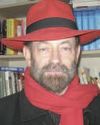
Philosophy Now
Pharmaco-Metaphysics?
Raymond Tallis argues against acidic assertions, and doubts DMT discoveries.
7 mins
August/September 2025
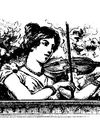
Philosophy Now
Nine Spiritual Exercises
Massimo Pigliucci explains how to get Philo-Sophical.
3 mins
August/September 2025

Philosophy Now
Books
We follow mammal's search for meaning, as Mark Vorobej savages John Gray's book of impractical cat philosophy, while B.V.E. Hyde ponders the point of Jordan Peterson. In Classics, Hilarius Bogbinder reviews Plato's Republic.
21 mins
August/September 2025
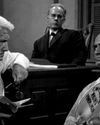
Philosophy Now
The Centennial of the Scopes ‘Monkey’ Trial
Tim Madigan on the creation and the evolution of a legend.
14 mins
August/September 2025
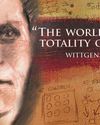
Philosophy Now
Gödel, Wittgenstein, & the Limits of Knowledge
Michael D. McGranahan takes us to the edge of language, mathematics and science.
10 mins
August/September 2025
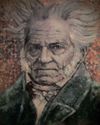
Philosophy Now
Weltschmerz and the World
Ian James Kidd takes a realistic and global view of the history of pessimism.
10 mins
August/September 2025
Philosophy Now
What Makes A Work Of Art Great?
Each answer below receives a book. Apologies to all the entrants not included.
16 mins
August/September 2025
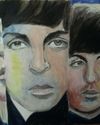
Philosophy Now
The Beatles: Nothing is Real
Clinton Van Inman gets back to the psychedelic Sixties.
4 mins
August/September 2025
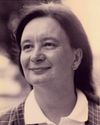
Philosophy Now
The Post-Truth Kerfuffle
Susan Haack, who is Distinguished Professor in the Humanities, Cooper Senior Scholar in Arts & Sciences, Professor of Philosophy, and Professor of Law, at the University of Miami, talks with Angela Tan about how and when we know.
11 mins
August/September 2025
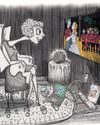
Philosophy Now
A Crisis of Attention
Paul Doolan attends to our culture of attention demanding.
13 mins
August/September 2025
Listen
Translate
Change font size
